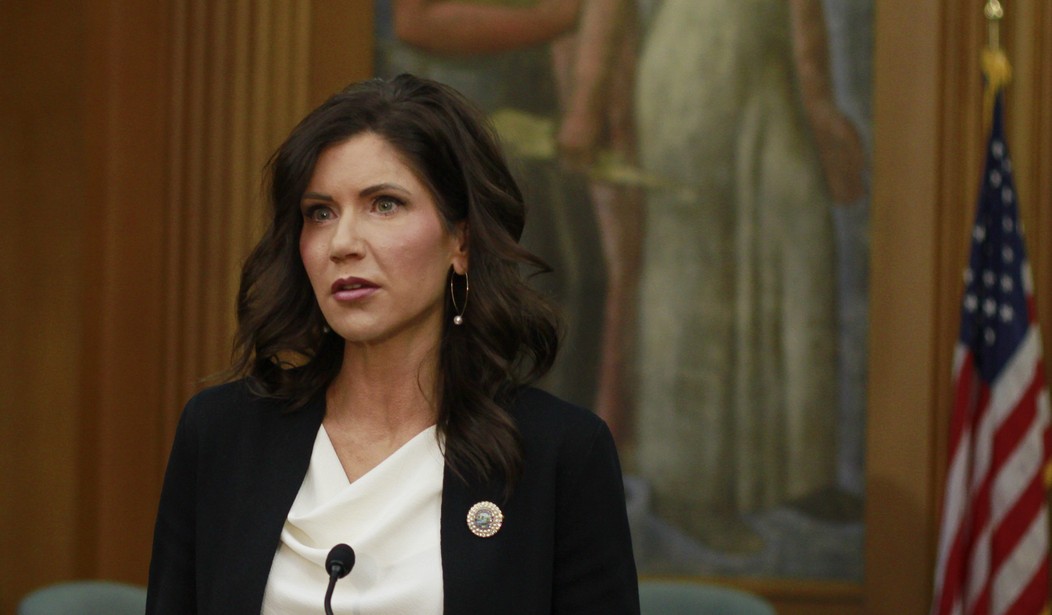Last week, Governor Kristi Noem (R-SD) vetoed South Dakota House Bill 1193. For doing so, she should be applauded for taking a proactive stance against this misguided effort.
HB 1193 would redefine the definition of money to exclude digital currencies like Bitcoin. Worse, the bill would have amended South Dakota’s Uniform Commercial Code to recognize Central Banking Digital Currencies (CBDC) as money.
Calling it an “attack on economic freedom,” the governor didn’t mince words about the legislation.
“HB 1193 adopts a definition of ‘money’ to specifically exclude cryptocurrencies like Bitcoin, as well as other digital assets. At the same time, these UCC revisions include Central Bank Digital Currencies as money,” wrote Governor Noem in a press release on the veto. “By expressly excluding cryptocurrencies as money, it would become more difficult to use cryptocurrency. By needlessly limiting this freedom, HB 1193 would put South Dakota citizens at a business disadvantage.”
Noem added, “At this moment in time, such a government-backed electronic currency has not been created. It would be imprudent to create regulations governing something that does not yet exist. More importantly, South Dakota should not open the door to a potential future overreach by the federal government.”
Recommended
The veto was celebrated by Bitcoin experts like Dennis Porter, co-founder of the Satoshi Action Fund.
“We must stand against CBDCs,” Porter tweeted in response to Governor Noem’s veto. “Thank you to the Governor of South Dakota for taking a stand against tyranny money.”
Republican-run states should be extremely careful flirting with CBDCs if they wish to contrast the Biden White House, which has expressed interest in creating a U.S. CBDC of its own. That should concern every American.
A CBDC is a digital token–much like Bitcoin–but one issued by a central bank. Critics of CBDCs contend there are fundamental problems with centralized digital currencies like this. They include “disintermediation, currency substitution, lack of privacy, and the inability to ensure compliance.”
An American CBDC plan was laid out in last March’s executive order “Ensuring Responsible Development of Digital Assets.” The findings were published in September 2022. Among the recommendations the White House wants to explore includes “recognizing the potential benefits and risks of a U.S. Central Bank Digital Currency (CBDC).”
The report adds it wants the Federal Reserve to conduct more research, experimentation, and evaluation of the feasibility of a CBDC.
It elaborated, “A U.S. CBDC – a digital form of the U.S. dollar – has the potential to offer significant benefits. It could enable a payment system that is more efficient, provides a foundation for further technological innovation, facilitates faster cross-border transactions, and is environmentally sustainable. It could promote financial inclusion and equity by enabling access for a broad set of consumers. In addition, it could foster economic growth and stability, protect against cyber and operational risks, safeguard the privacy of sensitive data, and minimize risks of illicit financial transactions. A potential U.S. CBDC could also help preserve U.S. global financial leadership, and support the effectiveness of sanctions.”
But centralized cryptocurrency frameworks are doomed to fail. See the FTX collapse.
CBDCs are centralized in nature and more susceptible to market volatility. Unlike centralized frameworks, decentralized blockchain technology is transparent and viewable to the public compared to CBDCs.
This is why the White House is eager to restructure cryptocurrencies from proof-of-work (PoW) to proof-of-scope (PoS) frameworks. To not only exert control over digital assets, but to control its so-called emissions problem—which is, at best, exaggerated.
As I recently explained, decentralized frameworks are far more stable and transparent compared to centralized entities like FTX–which is “designed to confuse customers about the risks they take when transferring assets between platforms. The attractive deals centralized platforms supposedly offer are too good to be true as they are inherently risky and unstable.”
Since the Biden administration refuses to lean on decentralization to allow cryptocurrencies to flourish, it’ll target Bitcoin and other decentralized digital assets — namely restructuring PoW that undergirds Bitcoin.
The terrifying fiscal monstrosity known as President Biden’s Fiscal Year 2024 Budget would impose a 30 percent excise tax on cryptocurrency mining.
According to the Treasury Department “Greenbook,” the document suggests firms that mine digital assets will “be subject to an excise tax equal to 30 percent of the costs of electricity used in digital asset mining” and report and record emissions. This measure would be enacted by December 31, 2023, and phase out the excise tax across three years per “a rate of 10 percent in the first year, 20 percent in the second, and 30 percent thereafter” if Biden’s budget is approved. But at this time, its chances of passing are increasingly slim in a Republican-controlled House of Representatives.
Nevertheless, Congressional Republicans have vowed to protect the cryptocurrency industry from attacks emanating from the White House. They should follow through on the promises they made andfollow South Dakota Governor Kristi Noem’s lead here.

























